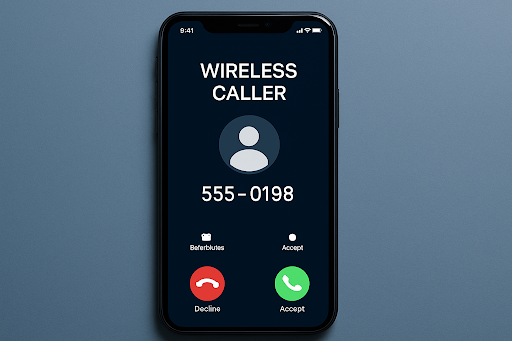
Overview
Ohio means dealing with a bunch of official stuff. And one thing that always pops up? That Ohio Business Entity Search. It sounds a bit dull, but honestly, it’s kind of your secret weapon. You can look up any registered business, double-check if a name’s available, or even just see if that weirdly named LLC you saw online is real. In 2025, with new businesses popping up faster than food trucks at lunch hour, this little search tool can save you some serious headaches.
What Is the Ohio Business Entity Search?
Imagine you had a magic window where you could peek into any legitimate business registered in Ohio. That’s what this tool is. Controlled by the Ohio Secretary of State’s office, it allows anyone to legally “snoop” on the public records of any type of business entity in the state. You simply type in a name or number and voila—you can see if it exists, what type of business it is (LLC, Corp, etc.), and if it’s still in use.
Ohio Business Entity Search helps you find registered businesses in Ohio, check name availability, verify business status, and access official company details quickly and easily online.
This isn’t only for business owners, either.
Curious customers, journalists, investors, and even nosy neighbors can use it to get the scoop. It’s all public information, and it levels the playing field for anyone trying to get clear, honest data before diving into any kind of business dealings.
Why It Matters in 2025
Here’s the thing—with remote work, side hustles, and online businesses blowing up, more people than ever are forming entities. It’s easier to start a business today than it was to set up a lemonade stand back in the day. But that means more chances to accidentally pick a taken name, or worse, get scammed by a fake business. This search helps keep things honest.
In 2025, more people are freelancing, consulting, or launching e-commerce shops out of their living rooms. The ease of registering a business also means it’s harder to keep track of who’s actually legitimate. That makes this search tool even more critical. It lets you verify that the business you’re buying from, working with, or investing in is the real deal.
How to Access It
Super simple. Just go to the Ohio Secretary of State’s website. There’s a search bar where you can plug in business names, agent names, or even document numbers. No account, no fee, no fuss. Just type and search.
You can search using several filters. For example:
- Business name (full or partial)
- Entity number
- Agent or officer name
- Document ID
The website’s layout is user-friendly, even for folks who aren’t tech-savvy. You don’t need any kind of legal background to use it. It’s designed for the public, not just lawyers and accountants.
What Info Can You See
Once you run a search, you get a goldmine: business name, type, status (active, dead, hanging in limbo), formation date, registered agent info, and filing history. It’s like a business’s resume, open for public view. Pretty handy when you want to check who you’re dealing with.
You might see extra info like prior names (if the business has rebranded), merger history, or even scanned documents for things like Articles of Incorporation. Having access to that kind of transparency is incredibly valuable in today’s market.
How It Helps New Businesses
If you’re starting your own gig, this tool helps you avoid copycat names. It also tells you what kinds of businesses are already operating under similar names. That’s huge when you’re trying to pick a name that won’t get you in legal hot water.
It also helps you scope out the competition. Let’s say you’re starting a dog grooming service in Columbus. You can see how many similar businesses are out there and what they’re called, and maybe even pick up on naming trends or gaps in the market.
Keeping Tabs on Competitors
No shame here. Want to know if that new bakery across town is an LLC or just someone winging it? You can check. Want to see when your competitor incorporated or if they’ve gone inactive? All right there. Totally above board.
This is especially helpful for local marketing and strategy. If a competitor’s status changes (like going inactive), you might seize the chance to scoop up customers or even buy out their assets. This tool gives you the early warning signs.
Checking Legal Status
This is a biggie. Before hiring a vendor or partnering with another company, always double-check their business status. If they’re not in good standing, you might be taking a legal risk.
Good standing typically means the business has kept up with its annual filings and fees. If they’re not current, that’s a red flag. It could mean they’re disorganized at best, or closing down altogether.
Registered Agent Details
Every business has to list a registered agent—a real person or service who can accept legal documents. If you ever need to serve papers or just make sure the business isn’t a shell, this part of the listing is clutch.
Some companies use third-party agent services, while others list the business owner. This can give you insight into how hands-on the business owner is or how big the operation might be.
Filing History and Documents
Another cool thing? You can view some of the official filings, like Articles of Incorporation or amendments. It’s all timestamped, so you get a glimpse into the business’s story over time. Great for doing deep dives.
Want to know when a business changed names? Or if they had a partner who dropped out? That filing history is your breadcrumb trail.
Pro Tips for Using It Right
- Use partial names if you’re not sure of the spelling.
- Check similar names before deciding on one.
- Always double-check the status (active vs. canceled).
- Don’t assume a fancy name means legitimacy—check the details.
- Look for multiple entries that might belong to the same company under variations of their name.
If you’re a startup founder, do a search once a quarter. If you’re a lawyer, accountant, or consultant, you might live in this tool. Even if you’re just a buyer or customer, taking two minutes to check can save you from a scam or mistake.
Conclusion
At the end of the day, the Ohio Business Entity Search isn’t flashy, but it’s one of the most useful tools you’ll find if you’re running a business or just doing due diligence. It gives you insight, keeps things transparent, and helps you avoid rookie mistakes. Whether you’re an entrepreneur, a cautious customer, or just a curious onlooker, knowing how to navigate this tool in 2025 can seriously up your game.
In a digital world where almost anyone can look legit online, tools like this keep things grounded. They help you see what’s behind the curtain. And honestly, in a world where scams are getting slicker, having something this easy to use and accessible to all? It’s kind of a big deal. Use it, bookmark it, and make it a habit in your business routine.
FAQs
Is it free to use the Ohio Business Entity Search?
Yep. Totally free. No credit card is required, and there are no hidden fees.
Can I reserve a name directly from the search page?
Not exactly. You’ll have to go through the name reservation process, but the search helps you know if the name’s taken.
What if I see incorrect info?
Contact the Secretary of State’s office. Businesses are responsible for keeping information up to date.
Can I use this for legal decisions?
You probably shouldn’t make huge legal moves based only on this search. It’s a tool, not legal advice.
Does it show sole proprietors?
Usually not, unless they’ve registered a trade name or other filing with the state.
How often is the information updated?
Pretty regularly. Most filings are processed within a few business days, and updates show up or soon after.

